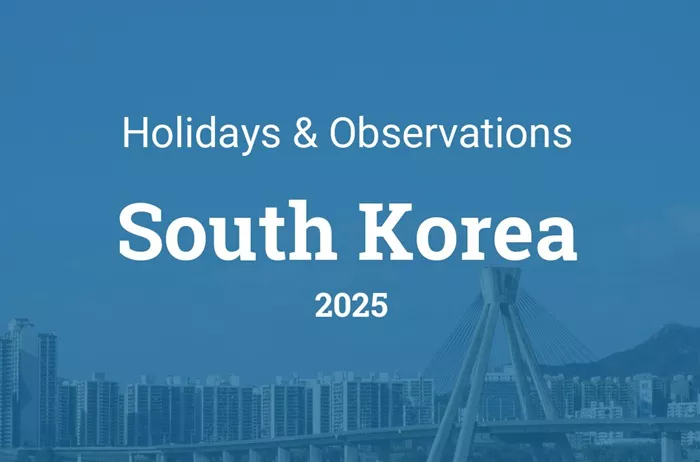As May approaches, speculation is mounting in South Korea regarding the potential designation of May 2, 2025, as a temporary public holiday. If confirmed, the move would create an extended six-day holiday, from May 1 through May 6, coinciding with Labor Day, Children’s Day, and Buddha’s Birthday.
The prospect of a six-day break has sparked widespread excitement, with many citizens hoping for an official announcement that would allow for an extended period of rest. The idea of a Golden Holiday—combining several public holidays—has generated discussions across social media and public forums, especially after the government declared a temporary holiday during the Lunar New Year to boost domestic consumption.
However, as the days tick down to the end of April, the government remains silent on the issue, leaving citizens in suspense. While the government has confirmed that June 3, 2025, will be a public holiday for the presidential election, no official stance has been announced on May 2. The lack of clarity has sparked frustration among many, with some expressing concern that such a last-minute decision would disrupt their plans.
One legal expert weighed in, stressing the importance of clear communication: “Temporary holidays are a matter of government decision, and they should be announced at least a week before the date. At the latest, it should be announced by April 30, 2025, to allow people to make plans accordingly.” This sentiment echoes the concerns of citizens who fear that the uncertainty surrounding the potential holiday will create unnecessary confusion.
Despite the growing anticipation, not everyone is in favor of extending the May holidays. Online communities have witnessed a mixed reaction, with some expressing frustration at the lack of transparency. “If you’re going to notify us before the vacation, don’t play around,” one user commented, while another added, “All school schedules and work schedules are messed up.” These remarks reflect the concerns of individuals who believe that such last-minute decisions could cause significant disruptions.
Further complicating the situation is the possibility that the holiday extension may not yield the intended results. Previous efforts to stimulate domestic tourism during temporary holidays have faced challenges. For instance, during the Lunar New Year, many South Koreans chose to travel abroad rather than stay within the country, contributing to a 7.3% increase in outbound travel compared to the previous year. The October temporary holiday saw an even larger spike, with a 16.6% increase in international travel.
The timing of the May holidays, which coincides with Japan’s cherry blossom season, raises additional concerns. Experts fear that the allure of international destinations could draw more South Koreans abroad, further diminishing the potential for increased domestic tourism. This could lead to overcrowding at popular tourist spots, rising airfare costs, and a decrease in domestic spending.
The government’s decision-making process involves consultations with key stakeholders, including the ruling party and the Ministry of Economy and Finance. Once discussions are completed, the Ministry of Personnel Management will present the proposal to the State Council for final approval. Given the complexities involved, it remains unclear whether May 2 will be officially designated as a temporary holiday.
As April draws to a close, citizens across the nation continue to wait for a decision. The outcome will not only impact personal travel plans but may also have significant economic implications. Whether the government will respond to the public’s hopes for an extended break remains to be seen, as many are eager for a timely announcement.
In conclusion, the potential designation of May 2, 2025, as a temporary holiday has generated considerable public interest. While many South Koreans are hopeful for an extended six-day break, the government’s lack of clear communication has fueled frustration and uncertainty. As the May holidays near, the final decision will likely have a profound impact on the country’s tourism industry and broader economic landscape.

